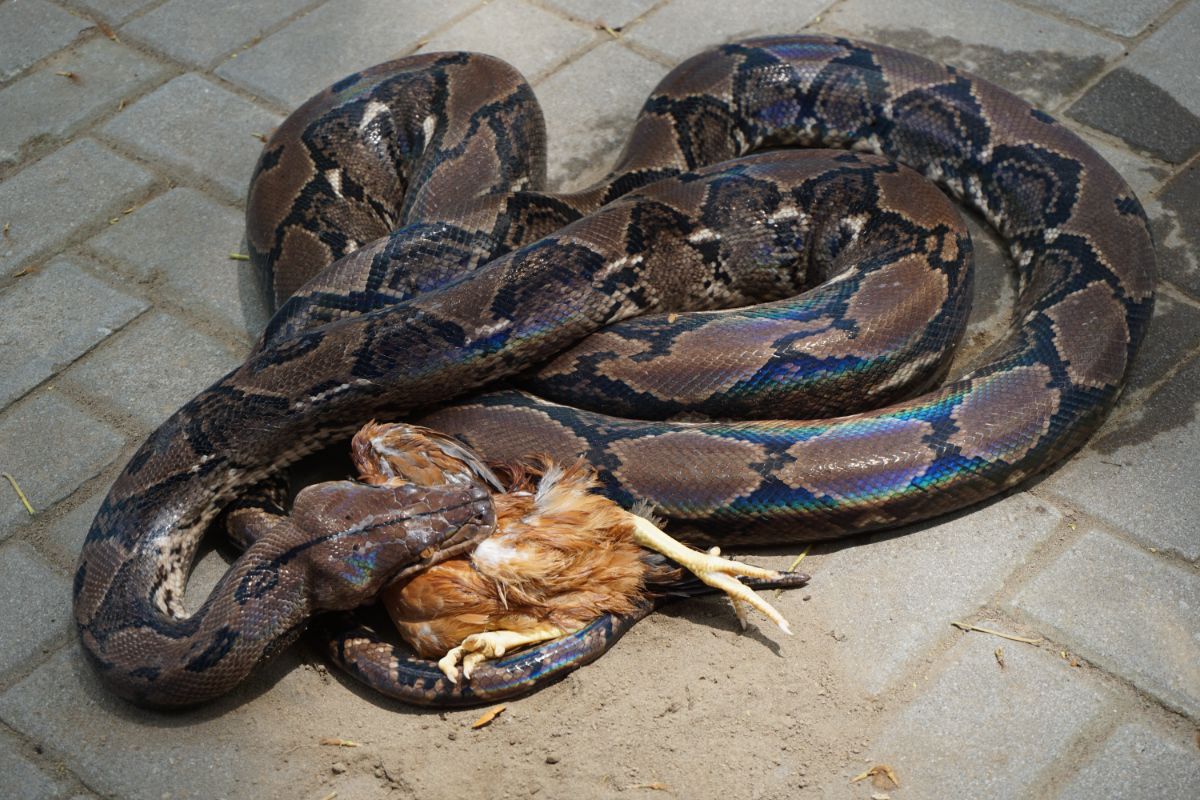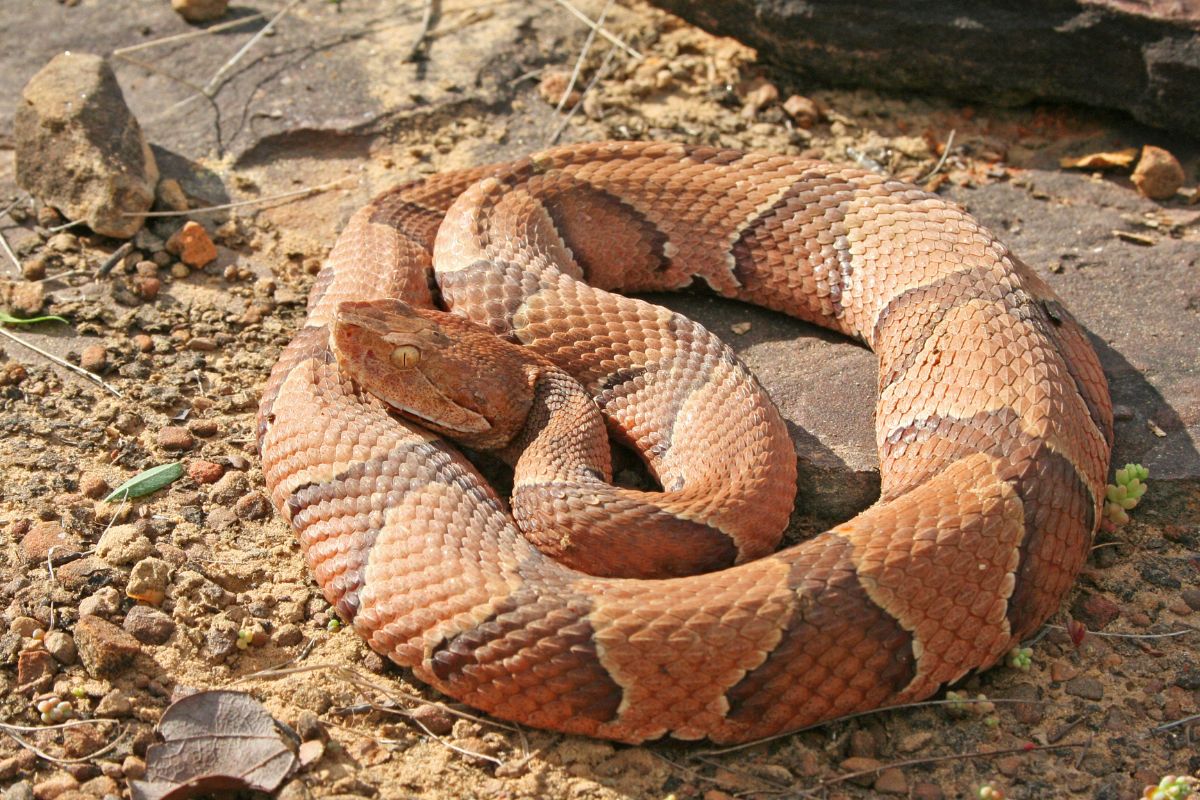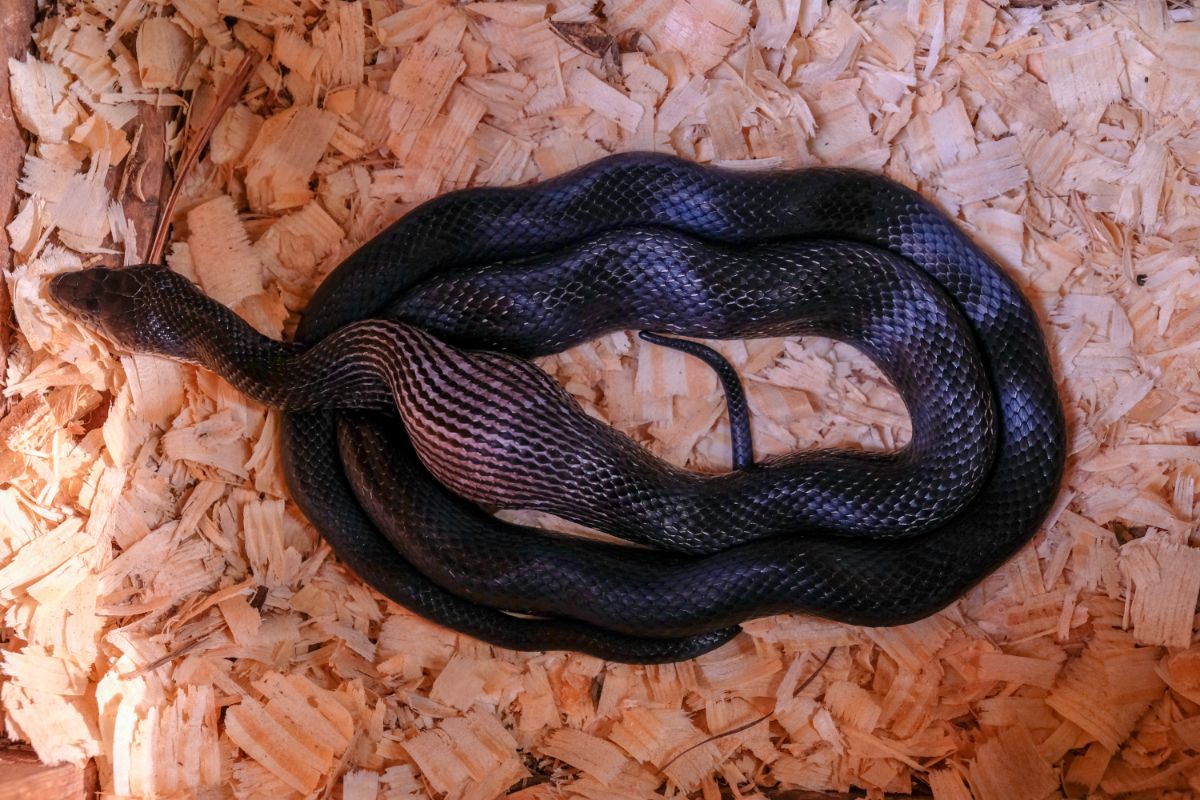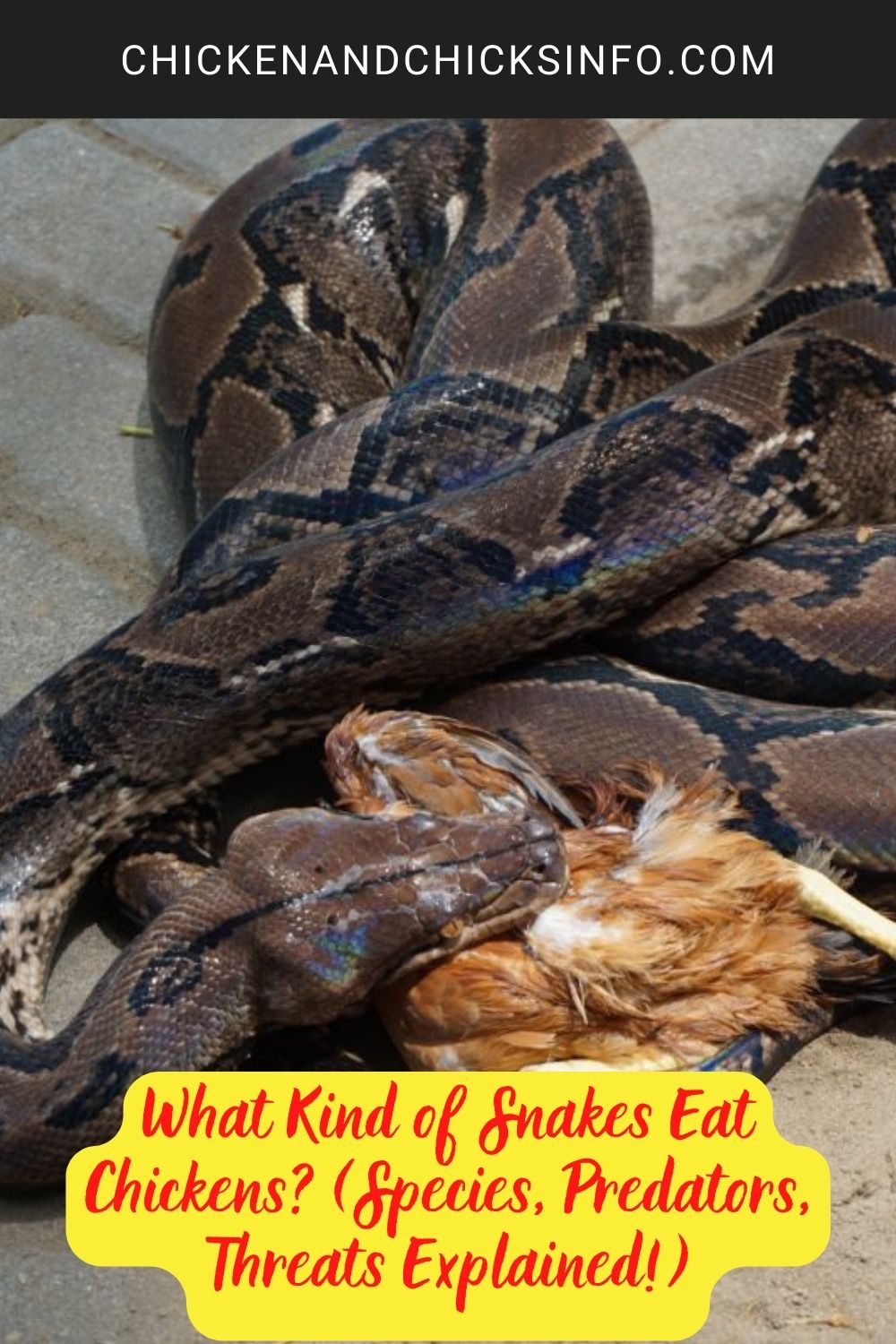
Snakes pose a serious threat to chickens in some parts of the U.S. Snakes are able to slither through small holes, dig under shallow meshing, and find a way into a coop if there is one.
If you own backyard chickens, it’s crucial you’re aware of any predators that may inhabit your area and the steps you need to take to snake-proof your coop and run.
Jump to:
What Kind of Snakes Eat Chickens?
Different types of snakes eat different things, but one thing most of the large snakes have in common is that they enjoy live prey - and this includes chickens.
If we’re talking about eating an entire chicken, then there are not a lot of snakes in the U.S. that are big enough to do this.
Some of the snakes that can be found across the U.S. and will eat a chicken should the opportunity arise are:
Cottonmouths
Cottonmouth (Agkistrodon piscivorus) snakes are one of the most feared snakes in North America.
They possess some powerful venom and typically feed on rodents, frogs, fish, and other snakes. They’re also capable of eating chickens.
Related - More on Cottonmouth snakes and whether or not they eat chickens and eggs.
Timber Rattlesnakes
Timber rattlesnakes (Crotalus horridus) grow up to 5 feet in length and although they’re known for having a mild temperament, they’re lethal when hunting prey.
They primarily eat small to medium-sized rodents and smaller birds, but like a lot of snakes are opportunist hunters and will tackle medium-sized chickens.
Related - More on Rattlesnakes and whether or not they eat chickens and eggs.
Pythons
Pythons (Pythonidae) are one of the most well-known and feared snakes. In the wild, Pythons are capable of eating animals as large as pigs and antelopes.
So, it’s safe to say they will absolutely eat a whole live chicken given the chance, possibly even several if they find their way into a coop.
Copperheads

Copperhead (Agkistrodon contortrix) snakes are responsible for most human bites, and there are several subspecies distributed across the country.
They commonly eat rodents, small birds, turtles, and other swampy animals. Large copperheads can eat chickens, too, given the chance.
Related - More on Copperhead snakes and whether or not they eat chickens and eggs.
How Do Snakes Kill Chickens?
Chickens, unfortunately, are prey to a lot of animals in the wild - and this includes a wide range of snakes.
Chickens are pretty good at sensing danger and escaping predators in the wild.
But if a snake gets into their coop, they’re effectively trapped and do not stand a chance trying to defend themselves against such deadly predators as snakes.
Snakes use venom to immobilize their prey and will inject a chicken with its venom by springing towards it and biting it.
They can then take their time to swallow the chicken whole. Snakes swallow prey because they do not have the right kind of teeth to chew their food.
Snakes are capable of eating animals up to three times the size of their own heads as their jaws are able to unhinge and let the animal pass.
This is why when you look at a snake and think, “there is no way that could swallow a whole chicken”, you may need to think again.
Even if a snake doesn’t swallow a chicken, there is still a very high risk of it killing a chicken and trying to eat it.
Will a Snake Try to Eat a Chicken?
If a snake is hungry, it will attempt to eat just about anything that it sees as prey.
For any of the above-named snakes, they will try and eat your chickens if they can get access to them, yes.
There are several other species that will have a good attempt at eating a chicken, too.
It’s not uncommon for snakes to try and take on a meal that’s too big, or to get disturbed while attempting to eat their prey as it takes a while.
I’ve read several accounts from backyard chicken owners who found one or more dead chickens in their coop and noticed they had wet heads and necks.
This is likely due to a snake attempting to eat the chicken and getting its head and neck into its mouth, only to find that they couldn’t fit their body in!
Can Snakes Eat Whole Chickens?
Some snakes can eat whole chickens, yes. It really depends on the size of the snake and the chicken.
Some breeds of chicken are small, such as Silkies and Old English Game. Obviously, they’re at a much greater threat of being eaten whole.
For larger breeds like Orpingtons, Brahmas, and Plymouth Rocks, it’s going to take a much larger snake to eat them whole.
This doesn’t mean they’re not in danger though. Snakes will often kill prey and try to eat it before realizing that it’s way too big for them.
If you have baby chicks, pullets, or any immature hens or roosters, you need to be extra vigilant as they are at greater risk.
Snakes That Eat Chicken Eggs

More often than not, your chicken’s eggs are just as - if not more - at risk than they are.
Most snakes love eating eggs, and it’s a lot easier for most species to eat eggs than it is as chicken.
Some of the species of snake that will steal and eat chicken eggs are:
- Egg-eating Snakes (What a great name, right?)
- Chicken Snakes (Yep, there is a species called ‘chicken snake’)
- Black Snakes
- Rat Snakes
- Diamondback Rattlesnake
- Prairie Rattlesnake
- Massasauga Snakes
- Milk Snakes
- King Snakes
This isn’t an exhaustive list, it’s safe to assume that any snakes in your area will at least try to eat your chicken’s eggs or wreak havoc if they get into their coops!
Snake-Proof Your Coop and Run!
I won’t go into detail here about how you can plug every hole and possible entry point into your coop and run, that’s something you’re going to have to evaluate yourself.
It’s crucial, however, that you check what species of snakes are known to inhabit where you live, and make sure you do everything you can to snake-proof where your chickens live.
The last thing you want is to enter your coop in the morning and find the kind of devastation snakes leave behind them!
In Summary
There are a lot of snakes distributed across Northern America that pose a serious threat to both your chickens and their eggs.
It’s always a good idea to be proactive about securing your coop and run so you can sleep easy knowing your chickens are safe!
Resources
North America’s 10 Deadliest Snakes - Land.com
Snakes - NationalGeographic.com





